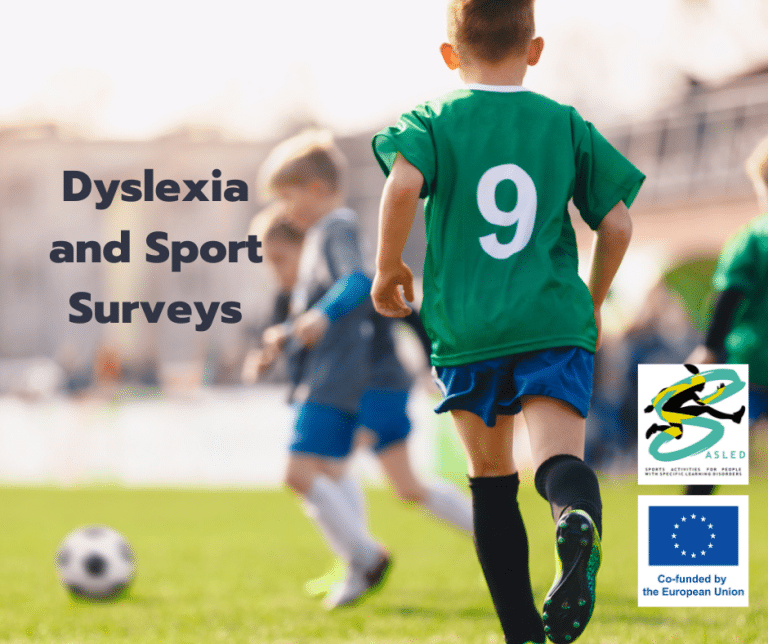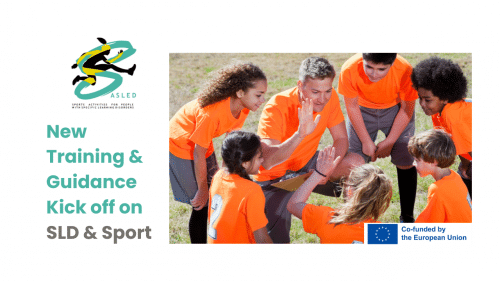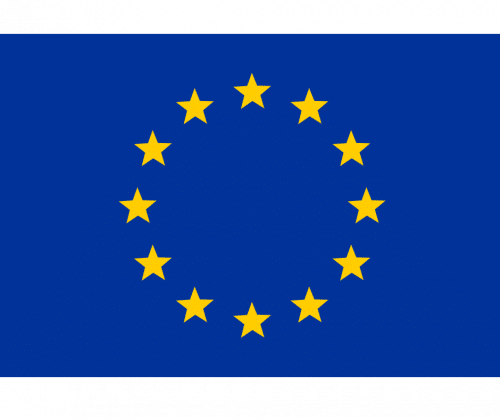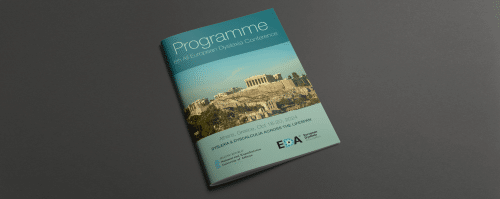EDA is a partner in a new Erasmus SASLED project (sports activities for people with specific learning difficulties). The project aims to research and improve the inclusion of dyslexic children and young people in sports activities. We wish to hear about individuals’ experiences with sports and how dyslexia (and other SLDs) may impact on participation in sporting activities. The project wishes to hear from a range of people and so we have three surveys open:
Survey for Coaches
(Coaches of children and young people aged 7 years and older):
https://survey.climaorganizzativo.biz/index.php/138876?lang=en
Survey for Parents
(Parents/guardians of children, young people and young adults with SLD aged 7-20 years):
https://survey.climaorganizzativo.biz/index.php/986299?lang=en
Survey for Children & Youth
(12-30 years old adolescents and young adults with SLD):
https://survey.climaorganizzativo.biz/index.php/243977?lang=en
Thank you for taking part. We appreciate your input.
We hope to gather a range of perspectives from these groups across Europe, so please help us by participating and sharing these surveys with your networks.
About the SASLED Project:
The SASLED project is a 24 month project which runs from January 2023 to December 2024, working to make sports activities more inclusive for children and young people with dyslexia and other specific learning difficulties (SLDs).
The SASLED project has 7 project partners in 5 EU countries:
- ASD Running Matera https://www.asdrunningmatera.it/ (LEAD PARTNER)
- ASD Sport Club Basilicata https://sport-club-basilicata.jimdosite.com/
- Asociata Bucuresti Pentru Copii Dislexici http://www.dislexie.org.ro/
- Associazione Italiana Dislessia https://www.aiditalia.org/
- Dyslexia Association of Ireland https://dyslexia.ie/
- European Dyslexia Association https://eda-info.eu/
- UCAM Universidad Católica de Murcia https://www.ucam.edu/
The SASLED project proposal number is 101089447. The SASLED project is funded by the European Union. Views and opinions expressed are however those of the author(s) only and do not necessarily reflect those of the European Union or the European Education and Culture Executive Agency (EACEA). Neither the European Union nor EACEA can be held responsible for them.





